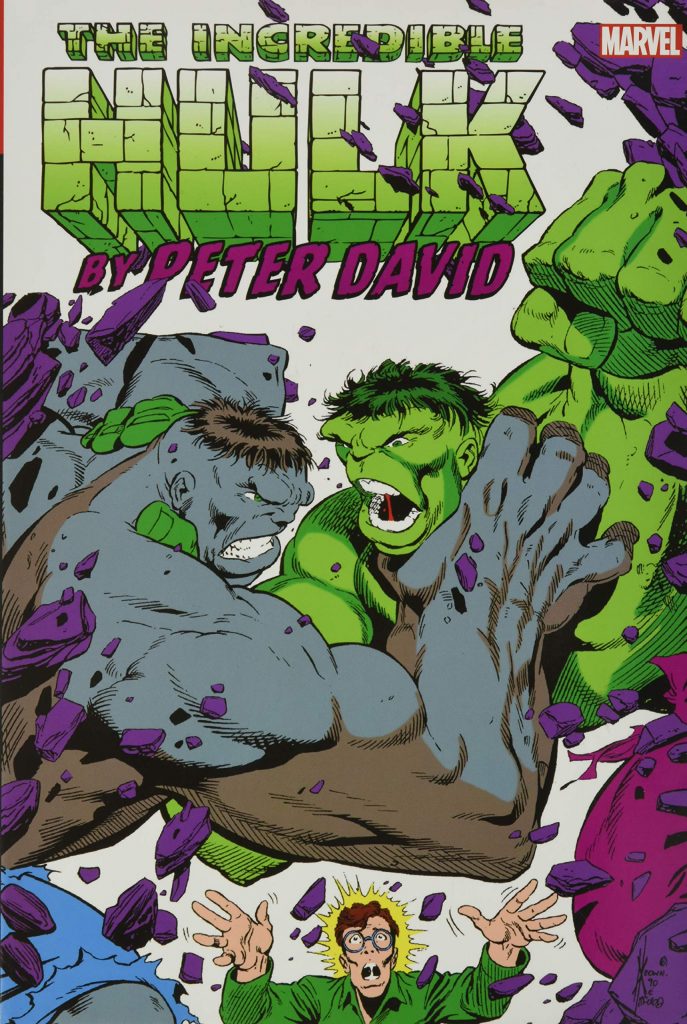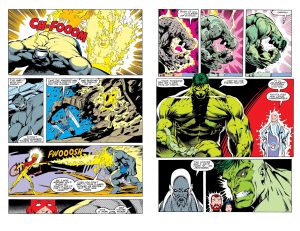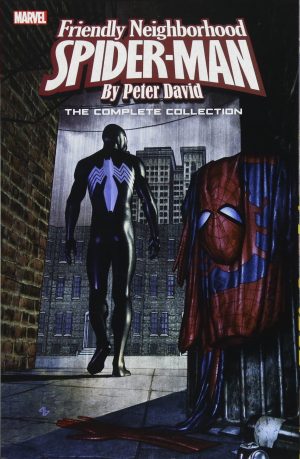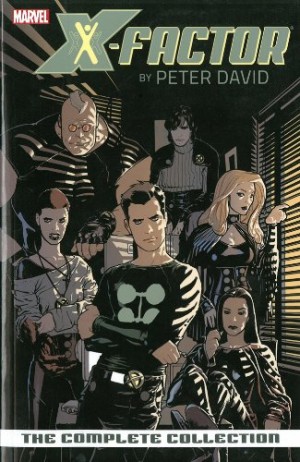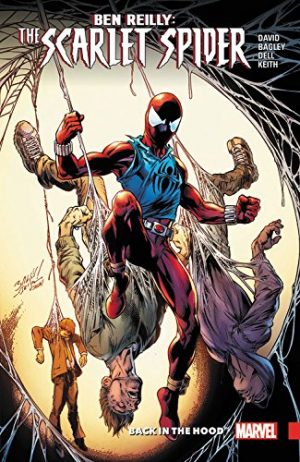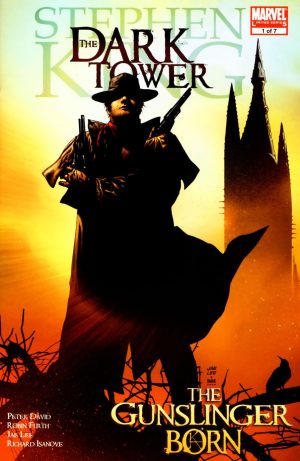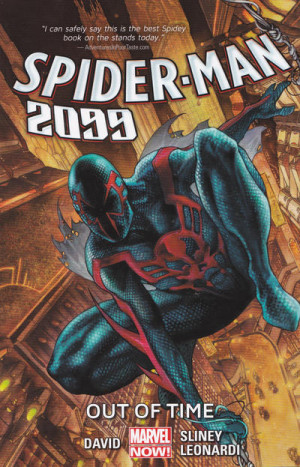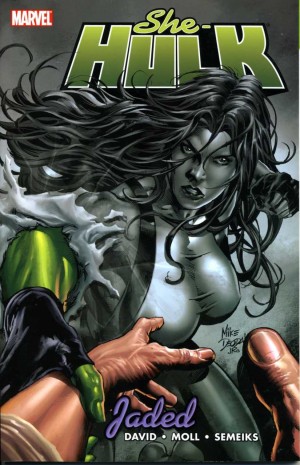Review by Karl Verhoven
The key theme of Peter David writing the Hulk is change, and that’s very apparent in this Omnibus covering 1990 to the end of 1992, encompassing the entirety of Dale Keown’s run as artist. It begins with the Hulk squat and gray just after the major battle with the Leader that ended Vol. 1, and ends with another face-off against the same foe, except now the Hulk has fused his strength with Bruce Banner’s intellect. He’s also joined previously unknown supergroup the Pantheon, buying into their agenda of attempting to better the world.
Starting with Keown, for a fair number of fans he and David are the definitive Hulk creative combination. He hits the ground running, combining dynamism, power and grace so well that a few less than perfect figures are of no account. This continues for almost the entire run, but toward the end he seems to be losing interest, and quits halfway through the final story here. The figures are a little sketchier, he moves the viewpoint in close more often, and the backgrounds aren’t as detailed. On the other hand, he’s so good for so long, with day to day scenes as well as action, it’s no big deal. And those issues drawn by others in his absence generally show what’s missing, with John Romita and Kevin Maguire the exceptions, and Gary Barker’s promise notable. Jan Duursema steps in for two of the three final chapters, looking distinctly uncomfortable on the first and very good on the second, while the confident Chris Bachalo draws the conclusion.
In addition to introducing the intriguing new supporting cast, David obviously loves Marlo, introduced in the previous volume, and plays her sassy character off the slightly sedate Betty Banner, yet without diminishing her. Friends from earlier eras Rick Jones and Jim Wilson both return in surprising circumstances, with David taking opposite emotional paths in the way they’re treated, and Keown for some reason giving Rick the Joker’s chin. The Hulk doesn’t have many notable enemies, but in addition to the Leader, the Abomination returns, which while moodily drawn, isn’t the best here.
David isn’t an overtly political writer, but there are places where he makes a point about social issues, US foreign policy and corporate influence. That’s the exception rather than the rule, which is more the inclusion of humour as a strong point, both verbal and visual, although some pop culture references have dated, while it’s inevitable the in-jokes have. Still, a pin-up page of a massive Hulk strapped with even bigger guns saying “Let us reason together” is an all-time classic, given the final flourish by his wearing pink bunny slippers.
Annuals are included, but annoying as produced during an era when they crossed to and from other titles. While it’s understandable that what’s written by other creators isn’t included, only a quarter of the story is provided here. Then again, David wasn’t always greatly enthused by what came his way.
When David and Keown are firing on all cylinders they’re a thrilling combination, and despite the frustration of many interruptions, of the four bulky volumes collecting David’s work this is the most consistent, and the one to go for if budget is an issue. If that’s the case, used copies of Incredible Hulk Visionaries: Peter David Vol. 6, Vol. 7 and Vol. 8 and Ghost of the Past provide alternatives. David continues on Vol. 3.
